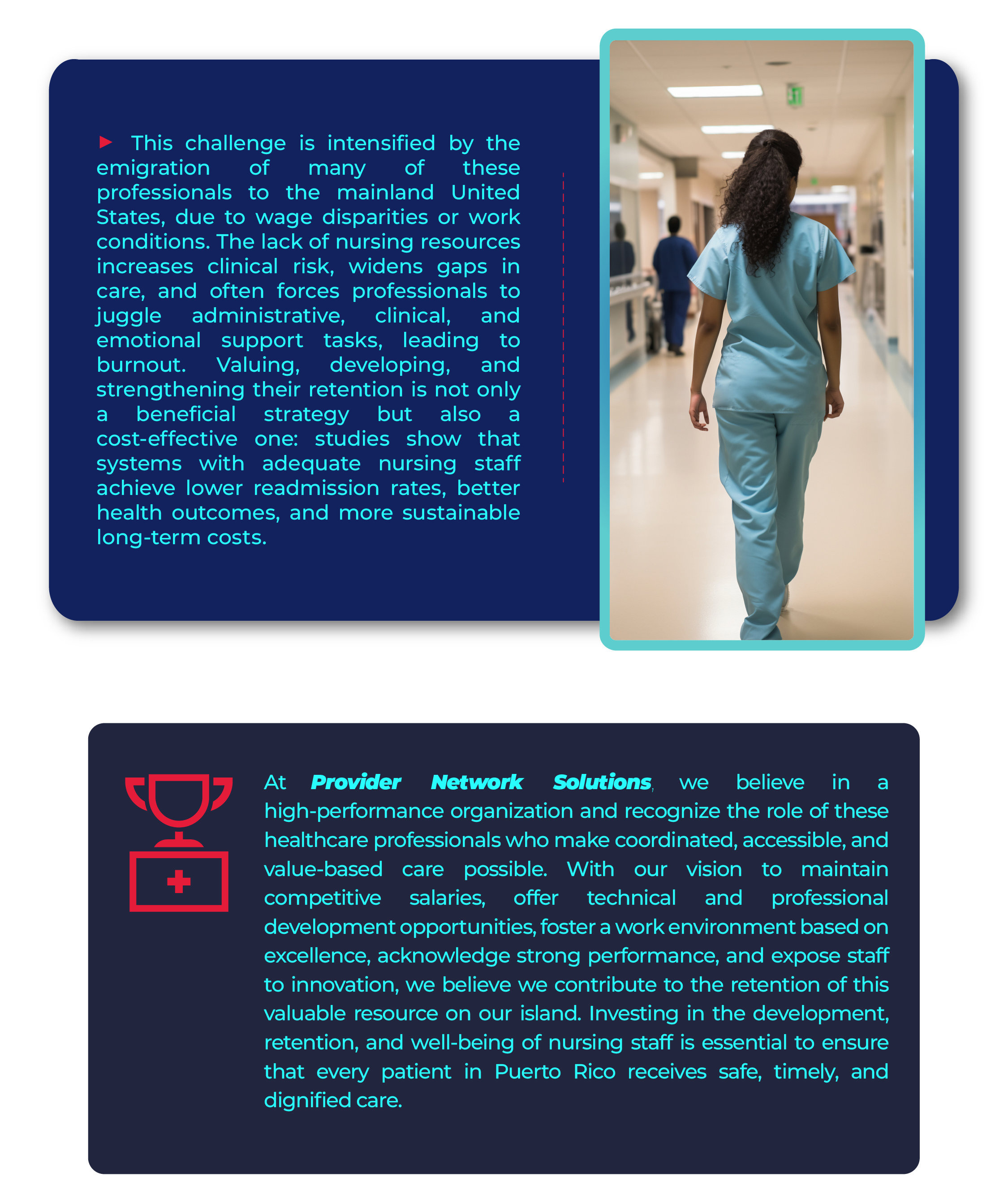This post is also available in:
 Español (Spanish)
Español (Spanish)
By: Vilmar Trinta Negrón
In Puerto Rico, the shortage of nurses represents both a challenge and an opportunity to rethink the value of these professionals within the healthcare system. Beyond their caregiving role, nurses are strategic players in prevention, education, and patient coordination. Retaining their talent is not only urgent: it is key to building a more resilient, humane, and efficient system.
▶ In a context of increasing prevalence of chronic diseases, an aging population (with over 21% of residents aged 65 or older, according to the 2020 Census), and growing demand for home and community-based services, the role of nursing professionals has expanded significantly. In Puerto Rico, these professionals do more than administer treatments, they lead educational interventions, detect early complications, coordinate interdisciplinary teams, and provide essential emotional support to patients and families. Their academic preparation, increasingly focused on advanced degrees, enables them to exercise clinical judgment in complex scenarios, and in some cases, even fill gaps in primary care, particularly in rural communities.
▶ The shortage of nursing personnel on the island is not just a daily perception in hospitals and health centers. In March 2025, the Puerto Rico Fiscal Oversight and Management Board, together with the consulting firm FTI Consulting, published the Puerto Rico Healthcare Workforce Study: a data-based analysis of the availability and needs of clinical personnel in the country.
The study confirmed that demand far exceeds supply, and that certain specialties are facing a critical shortage already impacting the quality of care. Key findings in the nursing field include:
Nursing Specialties with the Most Severe Shortages
- Critical Care (ICU)
Significant shortage of nurses with experience in adult and pediatric intensive care units. This gap leads to extended shifts and limits the system’s ability to respond to complex emergencies.
- Geriatric Nursing and Home Care
With an aging population (over 21% aged 65 or older), the lack of trained personnel to care for older adults in homes and long-term care facilities presents an urgent risk.
- Neonatology and Pediatrics
Although birth rates have declined, there remains a critical need for nurses specialized in neonatal care (NICU), particularly in regional hospitals.
- Mental Health and Psychiatry
There is a reported shortage of nurses trained to treat mental health conditions, both in psychiatric hospitals and in emergency rooms and outpatient clinics.
- Nurse Practitioners (NP)
Few professionals are trained in this advanced practice category, and their integration into the system is limited by current regulations. In rural areas, their absence restricts access to primary care services.

This post is also available in:
 Español (Spanish)
Español (Spanish)








